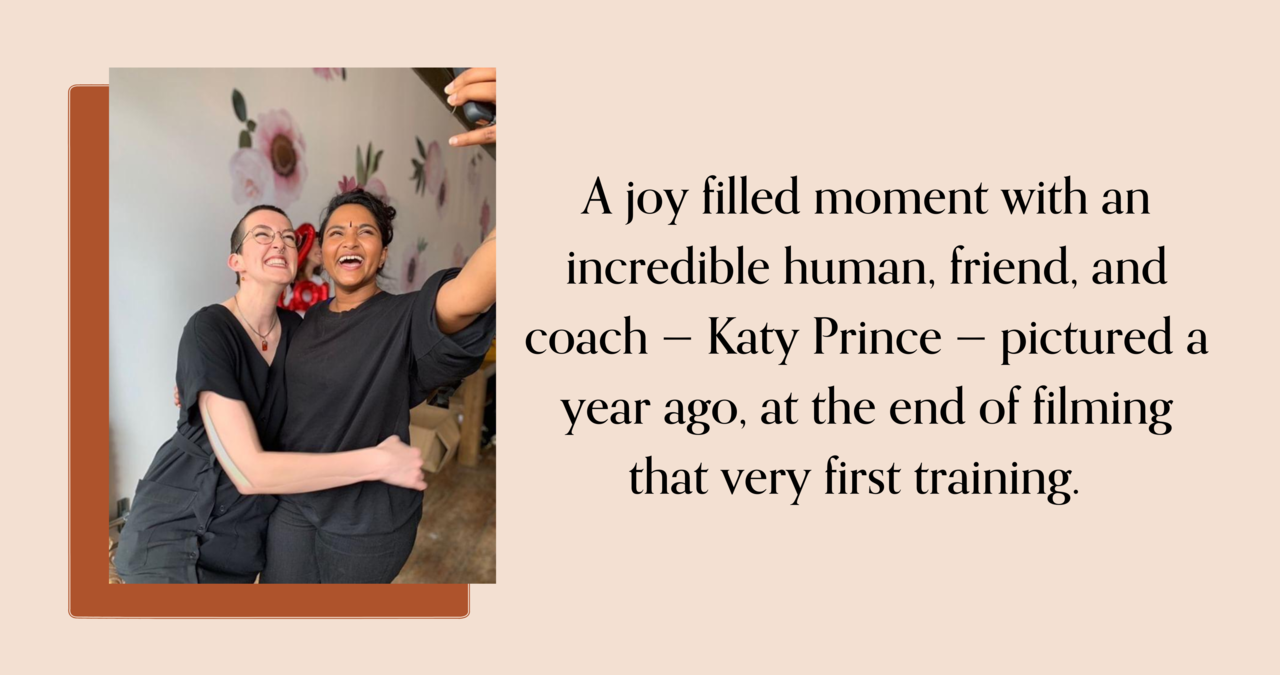This is how you TRULY redefine your story
Aug 20, 2020
If you’re anything like I was a year and a half ago, you may have no idea what NLP is.
Or perhaps you’ve heard some coach talk about it, but you’re not quite sure exactly what it means.
Rewind to last May, and I hadn’t even heard of it when I came across it for the first time, in the form of a client inquiry.
It showed up in my life as an email from someone who I later learned was a well-known coach and trainer in NLP, inquiring about videography for a three week intensive training of Neuro-Linguistic Programming — or NLP for short.
A few back-and-forth emails later, I found myself standing in a small, beautifully lit space filming 30-something individuals who were in the process of getting certified in this modality.
And I had so many questions.
See, traditional NLP is the study of the subconscious mind. It studies how from the time that we’re little, we program ourselves with stories about ourselves and the world around us. This then informs our behaviour and shapes our relationships with the world: from people, to the workplace, to money. NLP teaches us how to identify our subconscious programming, then gives us the tools to create new narratives that serve our desired realities iesand dreams.
And it’s powerful stuff.
Standing there in the classroom as ideas and information were being shared, I couldn’t help but think about the ways in which all of these theories were true — and yet — continued to work well in favour of a meritocratic system that I inherently didn’t believe in. On one hand, we can identify the limiting beliefs holding us back, but on the other it holds an underlying tone of privilege and ignorance to systemic issues that comes with it.
Fast forward to this past year, and I have not only filmed more of these NLP training sessions led by certified industry experts, but I have also seen first-hand the power of NLP in re-writing the stories we tell ourselves.
But the icky little reminder of the systemic structures that give me a different reality than my privileged counterparts always remains.
All this to say, after three full rounds of filming + editing the course content of NLP trainers, I decided to finally and officially get my own certification from one of my favourite humans and coaches, Katy Prince.

And today, a year and a half later, I feel like I finally have an answer.
See, traditional NLP teaches you that you are in complete control of your life and your results — because things are not happening to us, rather, but because of and for us.
The problem with that statement is, out of context and on its own, is that it comes with a connotation of blame and privilege — which makes sense considering the concepts of NLP were invented by two cis-het, white men in the 70’s.
However, as Katy reminded me today, the additional context and asterisks are important. Because it’s not about placing blame, rather, but instead about creating a supportive, encouraging, and accountable environment for change that actually allows for an increased access to choice.
And that’s the part that’s important.
Increased access to choice.
See, for the longest times, marginalized folks didn’t actually have access to choice for so many things.
When the access to choice is something that has only started to multiply over the course of the last two decades, it is a reminder that to truly understand that we even have the option to choose a different narrative is an emotional realization. And we need to hold space for that — while also holding space for the fact that what marginalized folks even wanted wasn’t considered important or valuable for so long.
So when we ask ourselves what we want and we actively, every single day, choose the story that we tell ourselves, this, inherently, is a powerful embodiment of activism.
So now I ask you:
Understanding the complexities of the systems we live in, the choices we might have been historically limited to, and the collective weight of the generational trauma that comes with lifetimes of our dreams and desires being considered unimportant:
What do you really want?
What is the story you want to tell about yourself?
And what will happen when you finally can?



